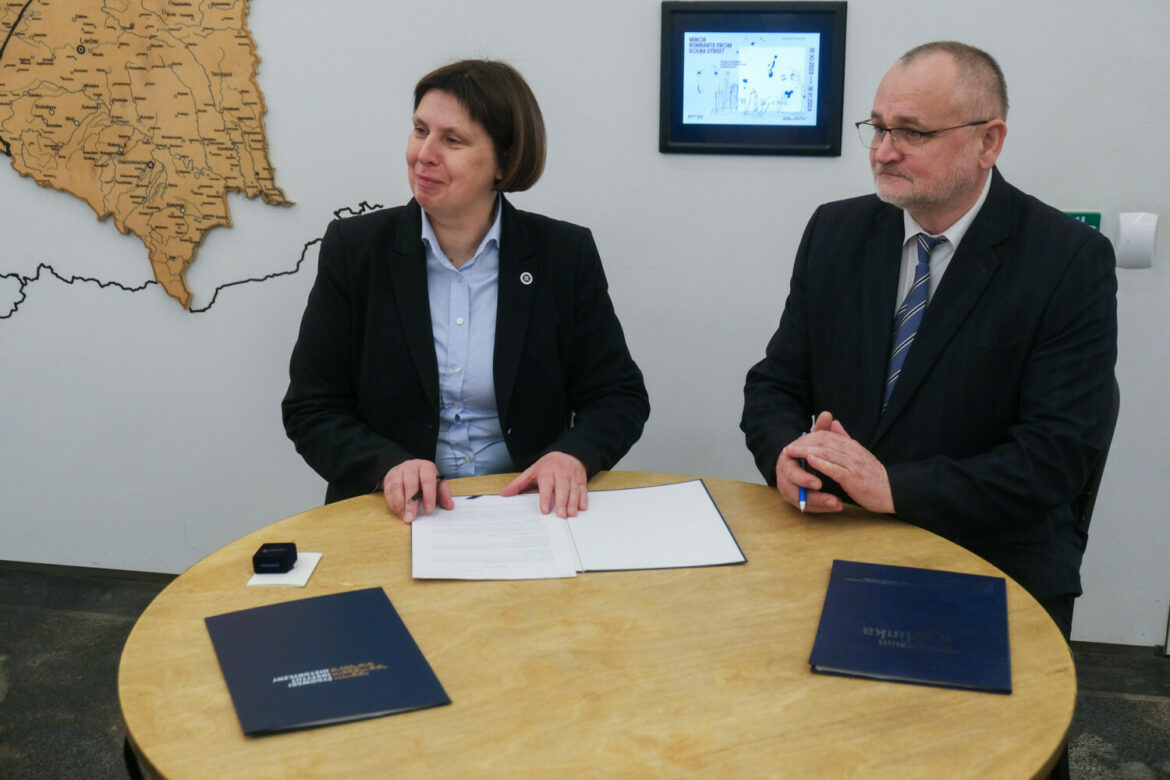The Jewish Historical Institute (ŻIH) will co-create the new permanent exhibition of the Treblinka Museum. An agreement on cooperation in the creation of the exhibition in the new building of the former German Nazi extermination and labour camp (1941-1944) was signed by the director of the ŻIH Monika Krawczyk and the museum’s director Edward Kopówka.
The Jewish Historical Institute houses a resource that was started by the Jewish Historical Commission, collecting and documenting events related to the period of German occupation during World War II so that German crimes would be documented by testimonies and accounts of direct witnesses to the Holocaust. The Jewish Historical Institute is also the place where the Warsaw Ghetto Archive is kept.
“The work of our researchers guarantees the highest level of historicity, relevance, and use of the collections. The Treblinka extermination camp was completely destroyed by the Germans, but thanks to the accounts of the Oneg Shabbat group, it was possible to obtain authentic documents. Noteworthy, among others, is the account of Jakub Krzepicki, who escaped from Treblinka, presented in our building in the permanent exhibition, as well as the plan of the Treblinka extermination camp from 1942 drawn up from memory by one of the escapees”, said Monika Krawczyk after signing the agreement.
The team preparing the new exhibition will be headed by Prof Andrzej Żbikowski, who at the Jewish Historical Institute heads research into the recent history of Polish Jews. The scientist said that he wants the new exhibition to be both traditional and commemorative, as well as modern in its own way.
“In Warsaw, we have several circles of researchers of the history of Polish Jews, especially those from Warsaw. My dream is that each of these circles will have something to say in this team, will show their vision, will point to aspects of necessary sensitivity and to public expectations. We realise that more than eighty years have passed, it looks different in the memory of contemporary Varsovians. We need to ask what they expect”, said Prof. Żbikowski.
Arkadiusz Słomczyński





